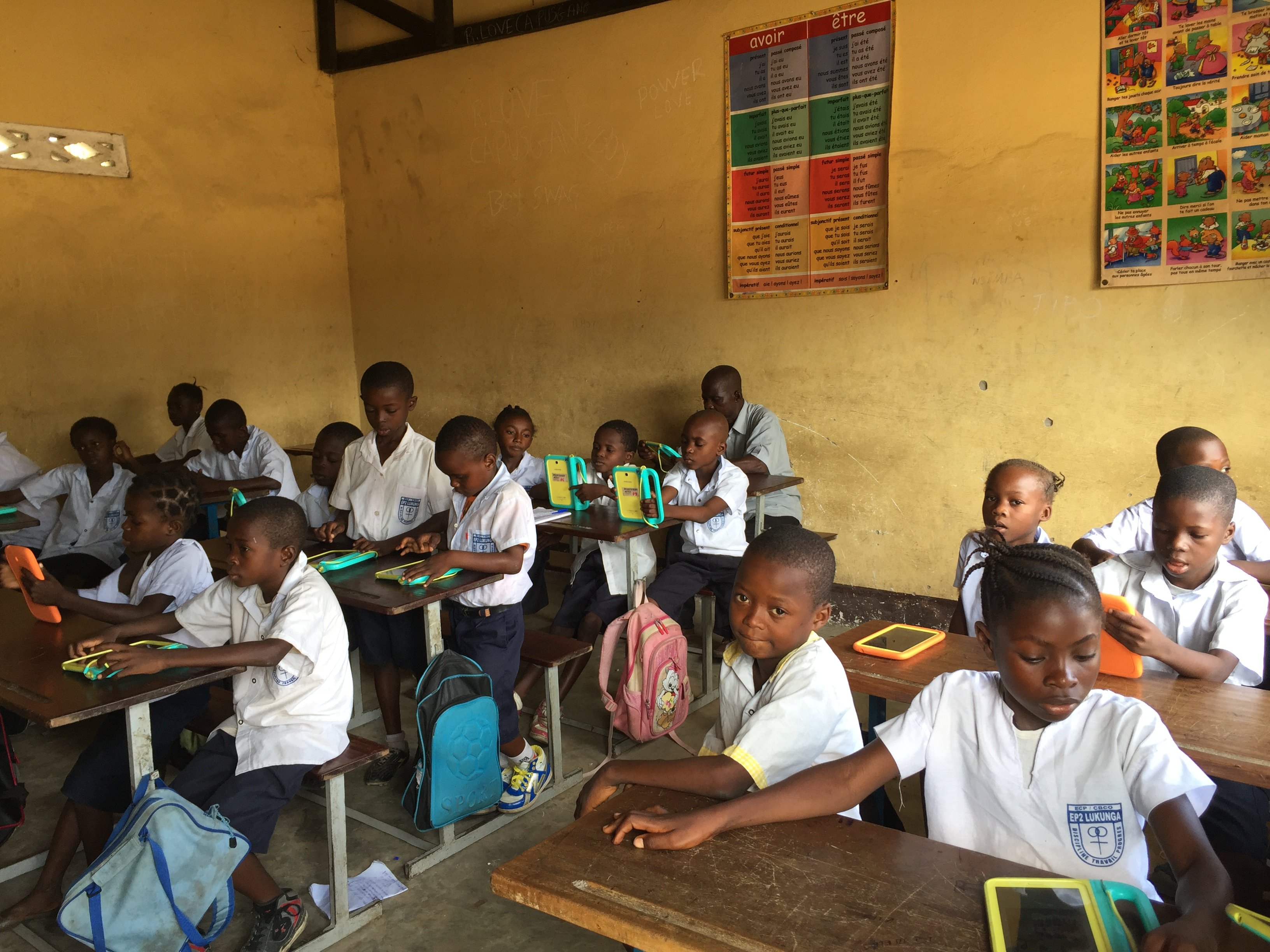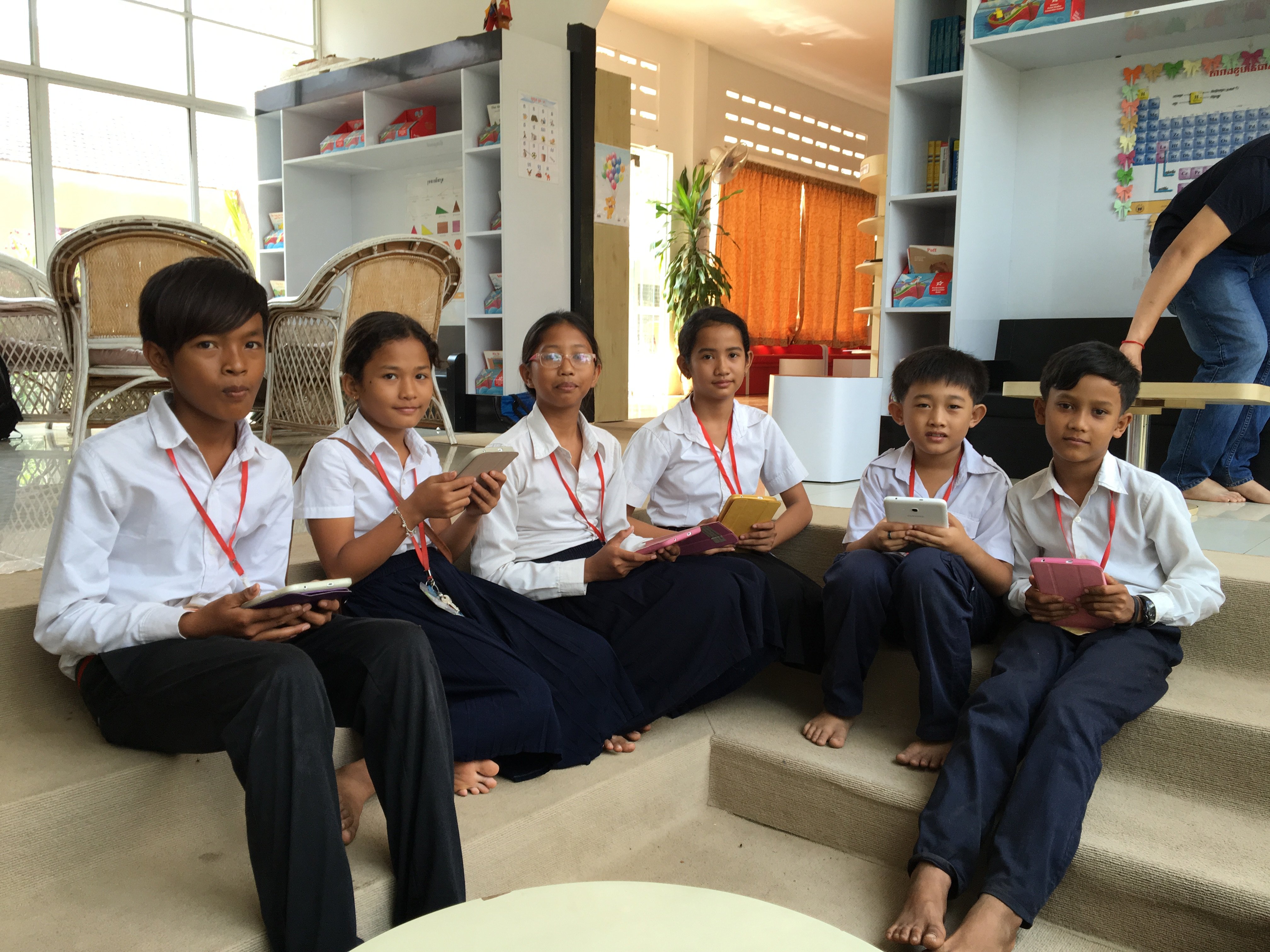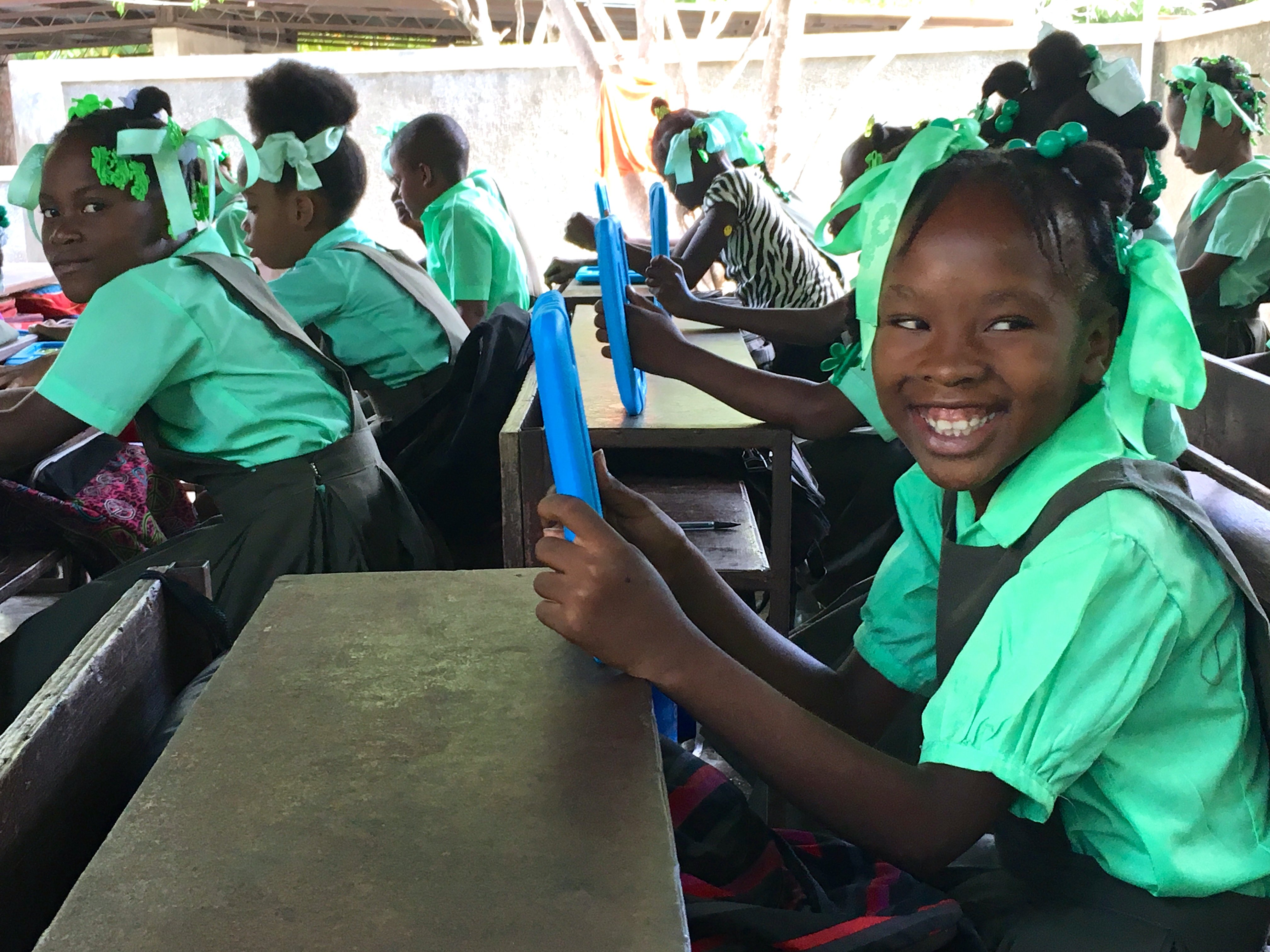Written by Tanyella Evans, co-founder & Chief Operating Officer of Library For All. This piece is published in honor of International Mother Tongue Language Day. Originally published here.
Today is International Mother Tongue Language Day. Take a moment to imagine that you are a child of five or six years old in Rwanda, enrolled in elementary school. As you leave for school in the morning, you say goodbye to your mom in Kinyarwandan - your mother tongue; you meet your friends on the road and chatter away in Kinyarwandan; meandering past the market, you overhear the shop vendors bartering in Kinyarwandan; but when you enter the classroom, unfamiliar words grate on your ears. You listen intently to the teacher, straining to understand and find your way through the maze of confusing characters and words. You leaf through a tattered reading book in the same foreign tongue, donated by some long-gone stranger, a plot line you can’t follow even by the illustrations, which confound you; fair-skinned children laughing in the park, visiting a koala in the zoo.
Read More: This Afghan Student is Bringing Libraries to His War-Ravaged Country
For elementary children in many parts of the world, this disorientating experience of learning to read is a typical everyday reality. In developing countries, multilingual instruction isn’t a luxury, it is a necessity. Increasingly, schools are teaching children only the language of business, and not the mother-tongue language. Schools are receiving books in international languages, but cannot find titles in their native language and with local images. Without instruction in their mother tongue in the early grades, many children will not learn the basics of how to read and write, and will therefore not later cross the bridge to literacy in international languages that are critical to their ongoing education. As UNESCO writes in their recent policy paper on mother tongue instruction, “being taught in a language other than their own can negatively impact children’s learning.”

What can we do?
We know that books and instructional materials in mother tongue languages are essential in addressing the challenge that 250 million children are not learning the basics of how to read and write, even after four years at school. The question is, how can we stimulate the global supply chain of high-quality content in hundreds of local languages?
This is the question that we at Library For All are working on addressing. We believe that sustainable development in this area depends upon a significant acceleration of three practices: (1) nurturing existing publishing industries, (2) harnessing the creativity of local communities to catalyze production, and (3) ensuring the result is high quality mother-tongue books in the hands of children. As participants in the Global Book Alliance, a multi-stakeholder group of public and private entities working on literacy efforts, we are mobilizing around these three practices.
Read More: 5 Countries Highlighting the Importance of Education on #LiteracyDay
Specifically, building from our experience in providing access to digital reading materials in mother tongue languages in five countries, Library For All is working on the following:
Nurturing existing publishing industries: Subsidizing demand for mother tongue books through public-private partnership is arguably the most sustainable path forward. This can be achieved by working with local and regional publishers that are already grappling with production of mother tongue books at scale, and providing them with the market predictability and demand they need to ramp up production. New funding mechanisms, clear procurement processes, and bulk purchasing would spur demand for books. At Library For All, we have experimented with licensing content from over 70 publishers, and have negotiated licenses for the digital rights to mother tongue texts from local publishers and authors. In the future, it has been proposed that a ‘Global Book Fund’ could co-fund book licenses and procurement agreements at scale with government and the private sector. This fund would draw lessons from the Global Alliance for Vaccines and Immunizations (GAVI), which subsidizes the demand for vaccines through public-private partnership, and has been successful in eradicating some of the most deadly diseases responsible for child mortality. Could the same model be adapted to eradicate illiteracy by subsidizing publishers to meet the demand for mother tongue books?
Harnessing the creativity of local communities to catalyze production: A second solution to fill the gaps in mother-tongue books available, is to create titles through training the local community and equipping them with the tools they need. Bloom software enables individuals in local communities to write stories that are levelled and aligned to the curriculum. Writers’ workshops can be an extremely powerful way to not only create mother tongue books, but also capture local folklore and stories that will delight children and spark their imagination and love of reading. Library For All recently won a grant from USAID to complete the production of 200 books in Haitian Creole, through writers’ workshops led by our Haitian team. All content produced will be Creative Commons licensed, which means that anyone can print, modify, or distribute the content for free.

Ensuring the result is high quality, mother-tongue books in the hands of children: Mother tongue books should be high quality, engaging texts that ignite in children a lifelong love of reading. We all remember our favorite children’s book from growing up - books that drew us in and delighted us with every twist and turn. Creating these page-turning titles is an even greater imperative for children who may have little access to books. One way that we address the need for quality at Library For All is through engaging a network of local content advisory boards, comprised of volunteer educators and content experts to review all of the books on our digital library distribution system. Lessons from Wikipedia and Khan Academy suggest that scaling up this community of editors globally, with a robust reviews and ratings system, could enable us to crowdsource the quality assurance process of mother tongue language content.
Why now?
Last International Mother Tongue Language Day, we learned that as much as 40% of the global population does not have access to education in a language they speak or understand. The research shows us that without mother tongue books and instruction, millions of children will continue to be lost in the classroom, and will grow up without the tools they need to live prosperous lives. At Library For All, we believe that the achievement of the sustainable development goals, and a world of “inclusive and quality education for all”, starts with a classroom where all children can take their first wide-eyed, curious steps into the world of learning and reading in their mother tongue.
You can find more information and join the action at www.libraryforall.org.
